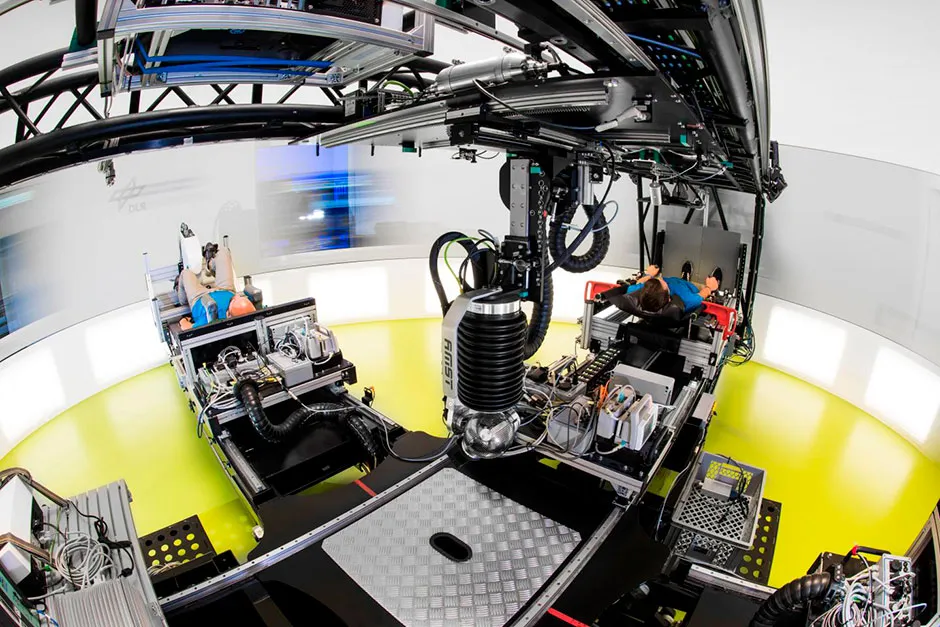A group of 24 people agreed to spend two months lying in beds that simulated weightlessness to allow scientists to study how it affected their cognitive performance.
The team found that the test participants got consistently slower at recognising emotions in facial expressions.
Over 60 days, the participants spent all their time lying in a bed tilted at a 6° angle towards their heads, except for 30 minutes a day in which they were spun on a centrifuge with their head at the centre to mimic artificial gravity. Their cognitive performance was tested before, during and after the bed rest.
The scientists used NASA’s Cognition tests, designed to assess the cognitive performance of astronauts on the International Space Station.
"Participants regularly completed 10 cognitive tests relevant to spaceflight that were specifically designed for astronauts, such as spatial orientation, memory, risk taking and emotion recognition," said Prof Mathias Basner, from the Department of Psychiatry at the University of Pennsylvania Perelman School of Medicine.
"The main goal was to find out whether artificial gravity for 30 minutes each day – either continuously or in six 5-minute bouts – could prevent the negative consequences caused by decreased mobility and head-ward movement of body fluids that are inherent to microgravity experienced in spaceflight."
Read more about life in space:
- Interstellar greenhouses: how a single molecule could be key to growing plants in microgravity
- This is your brain on space: how gravity influences your mental abilities
- 6 out-of-this-world experiments recreating space on Earth
The participants’ cognitive speed dropped once they went into simulated microgravity, but then stayed the same for the rest of the experiment. However, they got persistently slower at recognising emotions, and were more likely to identify facial expressions as angry than happy or neutral.
"Astronauts on long space missions, very much like our research participants, will spend extended durations in microgravity, confined to a small space with few other astronauts," said Basner. "The astronauts’ ability to correctly ‘read’ each other’s emotional expressions will be of paramount importance for effective teamwork and mission success. Our findings suggest that their ability to do this may be impaired over time."

However, this effect might not be due to the simulated microgravity. It could be due to the fact that the test participants were socially isolated over the study period.
"We cannot say whether the effects observed on the emotion recognition test were induced by simulated microgravity or by the confinement and isolation inherent to the study, with separate bedrooms and sporadic contact to the study team,” said Dr Alexander Stahn, study co-author and research assistant professor at the University of Pennsylvania's Perelman School of Medicine. “Future studies will need to disentangle these effects.”
In the future, the team plan to study whether longer periods of artificial gravity or a different amount of socialisation could solve these issues.
Reader Q&A: Does microgravity affect menstruation?
Asked by: Harriet Wulff, Ireland
Microgravity, such as that experienced on the International Space Station, has no effect on the menstrual cycle. In the 1960s, some experts warned against sending women into space over fears that menstruation and PMS could affect their ability to work. There were also concerns that blood might flow back into the body, pooling in the abdomen and causing peritonitis. The fears were unfounded.
However, the issue of storing sanitary items, together with limited washing water, means that women in space tend to take oral contraceptive pills to prevent menstruation during their mission.
Read more: